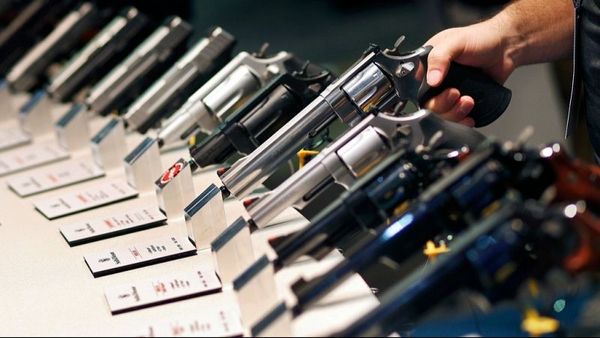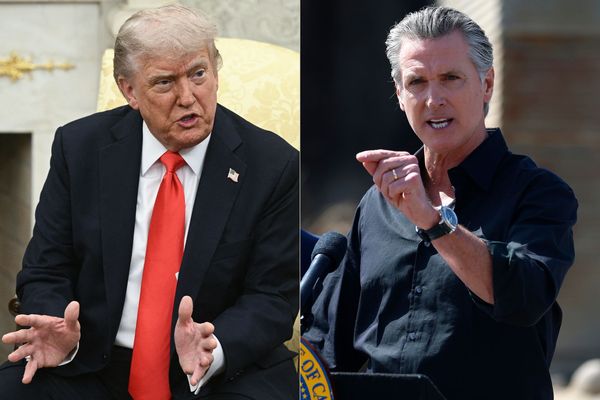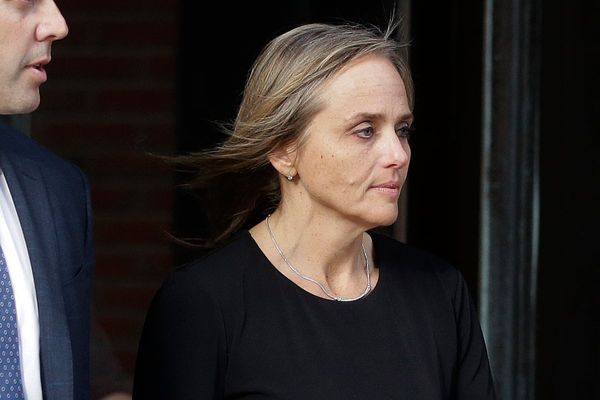
High school is always a tense coalition of tribes, and so it is in Glendale, California, the setting for Daybreak (Netflix). This community has geeks, freaks, mean girls, obnoxious boys and, ruling with cruel fists, the jocks.
Except the jocks actually do rule, meting out capital punishment on a whim. And these tribes are actual tribes, because school is over. Glendale has been hit by a nuclear bomb set to “basic young-adult dystopia” mode: we’re post-apocalypse now, and the grownups are all bloodthirsty but slow-witted zombies, leaving the mysteriously unaffected kids in charge. Things are gonna get messy! Sadly, those things include the show’s world-building, narrative structure and characterisation.
Energetic, imaginative, visually bold and yet so, so boring because none of the pyrotechnics are anchored to any logic, Daybreak centres on a classic gang of misfits led by Canadian immigrant Josh (Colin Ford). Josh was an outsider at school, albeit one of those tall, witty, handsome outsiders they have in teen dramas. Now he’s free, and on a quest to reunite with his beloved Sam (Sophie Simnett), whom he hasn’t seen since the mushroom cloud went up. Is she alive?
That grand unknown bubbles beneath the main business at hand, which is the same as in any school drama: in adversity, the kids transcend their cliques to reveal their nuanced selves. Bloody armageddon could intensify that, just as the songs did in Glee or the vampire-slaying did in Buffy. Instead it gets in the way, as we time-hop between Mad Max anarchy and snippets of regular life at school. But the past is not illuminated by a present that’s too busy chortling at people getting a crossbow through the face or a zombie bite to the neck.

Daybreak has nothing to add to the high-school canon – its take on teenagers’ inner lives is brutishly unsophisticated compared to, say, Sex Education or The End of the F***ing World – so it throws as much cool stuff as it can in your face to distract you. Broken fourth walls, ironic slo-mo montages, characters observing storytelling tropes as they participate in them: every meta trick available is deployed to mask the show’s empty emotional core.
What Daybreak does have is an excellent cast. Matthew Broderick is a no-brainer choice as the school principal whose meekness hides fierce cunning. Ford and Simnett make their flashback romance softly sing, as clumsy everyman Josh worships luminous dream girl Sam, a potentially icky creation that rising British star Simnett has the charm to pull off. Austin Crute brings humanity and sass to the plain weird role of Wesley, a former bully who is now a, er, pacifist samurai; Krysta Rodriguez is a sooty Goth riot as Ms Crumble, a teacher whose incomplete zombification means she’s still an ally to the kids. To clarify: adults are flesh-eating ghouls, except where it’s convenient for them to be something else.
Daybreak’s creators would, you suspect, think their lack of a coherent message or consistent voice is a feature, not a bug. This is binge telly, a stack of sugary carbs to be unthinkingly gorged on. Halfway through the season there’s a twist so obvious that, as it’s about to be revealed, you lazily wonder if the guess you made three episodes ago will turn out to be wrong. Surely it won’t just be … oh, it is. You could argue that the series evokes a plausibly apocalyptic feeling of nothing mattering any more.
The final episode ends with a further attempt at a rug-pull surprise, setting up a new antagonist whose identity is not so much shocking as naggingly unsatisfactory. Will this bid for a second season succeed? Hey kids, who cares?







